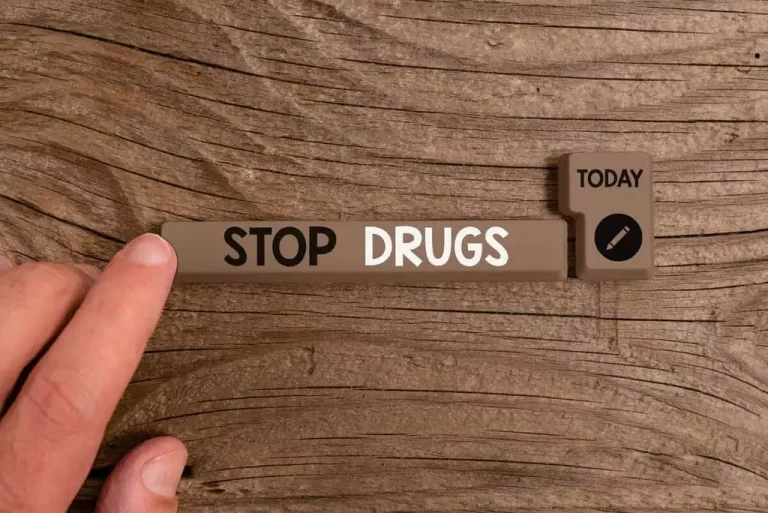
However, relapse can be an opportunity to reset, develop clear needs and goals, and continue. Refocusing on recovery and further relapse prevention with a care team is crucial. Attending or resuming attending meetings of some form of mutual support group can be extremely valuable immediately after a lapse or relapse.
Warning Signs of Relapse
Many drug rehabs in Arizona offer post-treatment therapy following an inpatient stay. Additionally, contacting your support system for help is another good place to start. However, only you can decide what to do after relapse, and whether you want to continue on the path of recovery.
- Certain thoughts, feelings, and events may trigger cravings and urges for drugs and alcohol, and, if not properly dealt with, may increase your chances of relapsing.
- Understanding that things like mental and physical health can significantly impact sobriety can help you learn to cope with your triggers now and in the future.
- Reaching out right away to your support network will greatly influence whether or not you take the steps to get back on track after a relapse.
- According to the National Institute on Drug Abuse, the rates of relapse for people with substance use disorder are 40 to 60 percent.
- We also need to make sure we are having some sober fun in our lives.
Addiction Is a Disease
Researchers have divided those phases into three easy-to-understand stages. Drug treatment research has shown that the level and quality of support and aftercare directly determines how people who have relapsed will fair after the event. Often, those who do not receive adequate support after a relapse will choose not to continue with treatment.
Are There Stages of Relapse?
When people use alcohol or other drugs for a long period of time, they develop tolerance. That means they have to take higher doses of the substance to feel the same effects. Poor self-care leads to negative emotions, feelings what to do after a relapse of unhappiness and increased levels of stress. As people continue to practice poor self-care, they transition into a mental relapse. Unfortunately, relapse is a very real outcome in recovery and addiction treatment.
Cocaine Relapse: Warning Signs and Solutions
Relapses can also occur in physical health and mental health conditions. In a health condition, it would involve the return of disease symptoms. In mental health, it would involve the return of symptoms after a period of recovery. Emotional relapse is the first stage of warning signs that may indicate a potential cocaine relapse.
- When an addicted person acts on their craving, a surge of neurotransmitters causes them to feel pleasure.
- This renewed motivation can help you come back from a relapse even stronger than you were before.
- Most substance use disorder treatment options include creating a relapse prevention plan.
Attend Meetings & Build a Stronger Support Group
- Since roses symbolize healing for me, I took it as a sign of hope … that I won’t plummet too far … there are things in this life that I’m meant to do.
- You can take back your life from addiction and get to a place where you feel proud and fulfilled.
- A relapse usually refers to a person using the substance they are recovering from, but it’s often not that black and white.
- Research has found that getting help in the form of supportive therapy from qualified professionals, and social support from peers, can prevent or minimize relapse.
- From the model depicted above, you can see that everything relates back to the “high-risk situation” (where relapse triggers are at their most prominent).
- But happy events can also trigger a relapse, especially if others celebrate with alcohol.
Exercise, listening to music, getting sufficient rest—all can have a role in taking the focus off cravings. And all strategies boil down to getting comfortable with being uncomfortable. https://ecosoberhouse.com/ Relapse is emotionally painful for those in recovery and their families. Nevertheless, the first and most important thing to know is that all hope is not lost.

While preventing relapse is the best way to ensure a smooth path to recovery, sometimes it isn’t possible. If you or someone you know has suffered a relapse, there are some critical steps to take after relapse occurs. These tips will help you get control of your addiction again instead of the other way around. Mental relapse is the second stage that occurs before a cocaine relapse.

Treat yourself with kindness and understanding after a relapse. Self-compassion fosters resilience and helps reduce feelings of guilt and shame. No matter what stage of relapse you’re in, getting your recovery journey back on track is essential. Thankfully, there’s a step-by-step process that can help you do just that. But try not to dwell on the negative feelings that will come up. A lot of us already have negative feelings about ourselves or feel like recovery is something we cannot do after a relapse.

Relapse After Recovery
One effective approach is the utilization of cognitive-behavioral strategies, which involve identifying and challenging negative thought patterns that contribute to substance abuse. Research indicates that cognitive-behavioral therapy (CBT) can help individuals recognize the thoughts and situations that lead to relapse, equipping them with the skills to cope with future challenges. The fact that you were clean and sober before you relapsed proves that it can be done. You just need to re-frame what relapse means, why it happened and ways to avoid another one in the future.

Combination treatment extends survival in locally advanced bladder cancer
Therefore, a key aspect of recovery is identifying potential triggers and risk factors and avoiding them as much as possible. At this stage, working toward avoiding triggers or high-risk situations in which relapse could occur is critical. Therapy may focus on identifying high-risk situations and learning ways to avoid them.


